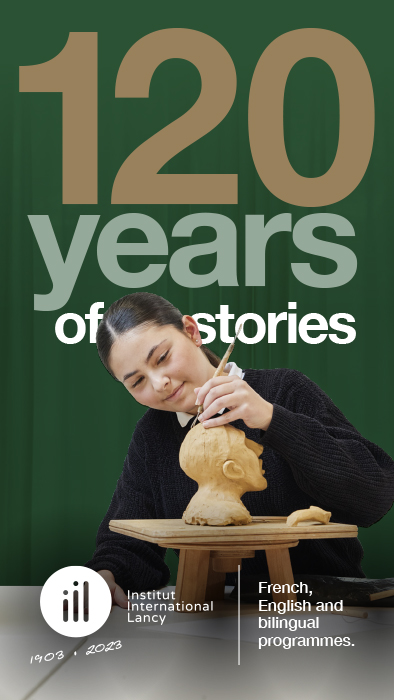Why diversity and inclusion truly matters
Diversity, Equity and Inclusion (DEI) are core principles at the United Nations, reflecting our commitment to embracing global cultural diversity and providing equal opportunities. The Secretary-General’s agenda for UN system-wide gender parity underscores the priority of DEI, crucial to promoting peace and sustainable development worldwide. The key aspect of the strategy is the need to increase the recruitment and advancement of women within the UN – in particular in middle to senior management levels where the gaps are greatest.
In today’s interconnected world, diverse perspectives and inclusive practices are essential for tackling complex challenges and fostering innovation. While managing diversity can be challenging, it cultivates an atmosphere of respect and support for all individuals.
DEI is not merely rhetoric; it’s the very essence of what makes the UN so attractive to so many of us. It’s what drew me in and I’m sure many of you feel the same way. We often hear that diversity and inclusion creates an atmosphere of acceptance and support for everyone, regardless of their differences.
The overlooked aspects of diversity and inclusion
Amidst our celebration of diversity, there are two aspects of diversity and inclusion that are often overlooked within the UN. First, let us examine the issue of inclusion. While diversity addresses representation across various dimensions, such as geography and gender, inclusion takes it a step further. It means ensuring that everyone is not just present but included, visible, heard and considered. Unfortunately, some diverse talents feel left out after joining the UN. They often find themselves not fully integrated, leading to their contributions being frequently overlooked. This lack of belonging undermines the very essence of inclusion.
An indicator of the UN’s commitment to inclusion is the number of job openings for Diversity and Inclusion positions. However, these opportunities are scarce, often limited to country programming roles, which reflects a lack of emphasis on this crucial aspect.
Without equal opportunities for advancement and career growth, diversity initiatives often fall short of their intended goals. Organizations, including the UN, must prioritize creating a welcoming environment where all employees feel valued and have equal opportunities to thrive. Moreover, just as there is now zero tolerance for sexual harassment within the UN, bullies who mistreat others based on their background (be it their ethnic origin, religion or sexual orientation) should also face zero-tolerance policies.
Regrettably, based on my personal experience, such behavior still persists within the UN, which is both deeply concerning and requires immediate attention and action. Such behavior not only undermines the UN’s commitment to fostering an inclusive and respectful work environment, but also includes significant risks to reputation when a bully holds a managerial position with subordinates. Addressing such behavior is crucial for fostering a truly inclusive and respectful workplace culture where every individual feels valued and respected.
Another aspect to consider is the impact on the career advancement of those who are not considered ‘diverse.’ Here, I am particularly referring to white men from Western Europe or North America. While diversity and inclusion are essential, it’s crucial not to neglect the career advancement of these demographic groups. I’ve witnessed firsthand how challenging it can be for them to progress within the UN.
So, what can individuals from this demographic group do?
1. Cultivate a robust professional brand: showcase your skills, achievements and contributions through proactive engagement in professional networking, optimizing online profiles and active participation in relevant industry events. Building a strong professional brand not only enhances visibility, but also amplifies opportunities for career advancement, both within and beyond the organization. Additionally, consider broadening the scope of your career prospects by exploring related yet slightly different roles, both internally and externally.
2. Explore lateral career moves: embrace the opportunity to embark on lateral career moves within the organization. Venturing into different departments or teams can enrich your skill set, broaden your professional horizons and unlock new possibilities for advancement. By diversifying your experiences and expertise, you position yourself for more opportunities in your career journey.
While navigating the complexities of dual careers within the UN can be challenging, especially for white men with partners also working in the organization, prioritizing the partner’s professional growth can sometimes be a choice for family harmony and well-being. It’s essential to acknowledge the UN’s current limitations in accommodating dual-career couples, highlighting the need for creative solutions to address these issues.
It’s clear that there’s work to be done to ensure that diversity and inclusion efforts are truly effective and address some overlooked aspects.
The UN should consider establishing a dedicated unit or hiring specialists where necessary to drive diversity and inclusion initiatives and implement metrics to measure their success. By addressing these issues head-on, together we can create a more inclusive and equitable workplace for all.
Balancing diversity and merit
While advocating for diversity and inclusion, it’s crucial not to allow diversity considerations to overshadow merit. Merit, which encompasses efficiency, competence, and integrity, remains the ‘paramount consideration’ for appointments and promotions, as stipulated by the UN staff rules and regulations.
The current language in the staff rules emphasizes recruiting staff in as wide a geographical basis as possible, while also highlighting the importance of efficiency, competence and integrity as paramount considerations. However, the interpretation of these criteria appears to vary, leaving room for ambiguity in decision-making.
One potential avenue for improvement could involve implementing a more structured policy, such as a points system, to systematically assess the impact of diversity considerations on appointments and promotions. By adopting this approach, the UN could establish a clear framework for evaluating candidates based on both merit and diversity factors, while also giving due consideration to internal candidates. Such a system would ensure that all relevant factors are carefully weighed in the selection process, fostering enhanced transparency and fairness in decision-making.
This transparency would dispel doubts about the basis on why certain people were selected and would also increase employee engagement by promoting trust and confidence in the organization’s commitment to fairness and inclusivity.
Moving forward, the UN could benefit from establishing clearer guidelines and criteria for decision-making, ensuring that merit and diversity are appropriately balanced and that decisions are made transparently and consistently across the United Nations common system. By upholding a culture of transparency and accountability, the UN can further its commitment to promoting diversity and inclusion while upholding the principles of meritocracy and fairness.




